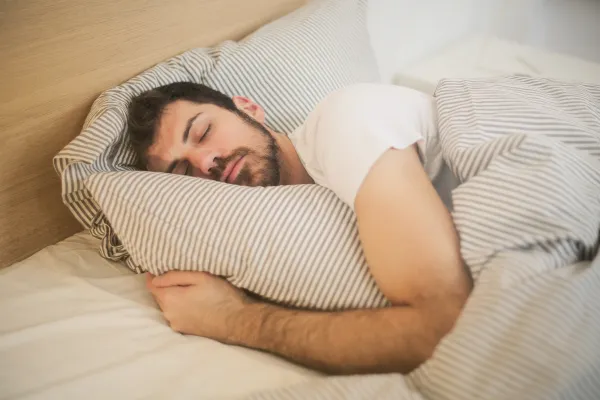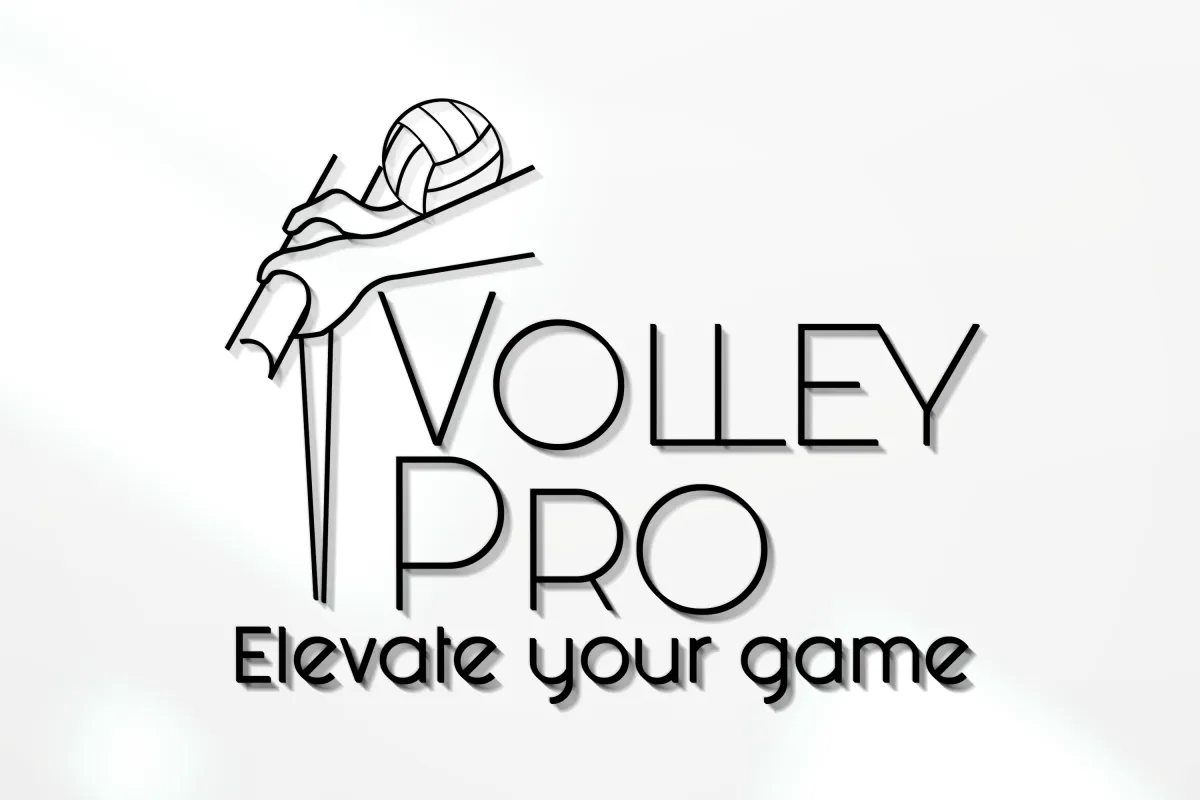
Read Our Blogs

The Importance of Sleep for Volleyball Players: Rest, Recover, and Rejuvenate
Sleep is often overlooked in the pursuit of athletic excellence, yet it's a crucial component of optimal performance, recovery, and overall well-being for volleyball players. While training, nutrition, and mental focus are essential for achieving peak performance, sleep is the foundation upon which all these elements rest. Volleyball players who prioritize sleep enjoy numerous benefits, including improved physical and mental performance, faster recovery from training, reduced risk of injuries, and enhanced overall health and well-being.
Why Sleep Matters for Volleyball Players:
Sleep is not merely a period of rest; it's a complex and dynamic process during which the body and mind undergo essential restorative functions. For volleyball players, who push their bodies and minds to the limits with intense training, demanding matches, and frequent travel, sleep is even more crucial for optimizing performance and ensuring long-term health.
Here's how sleep benefits volleyball players:
Muscle Repair and Growth: During deep sleep, our bodies release growth hormone, which is essential for muscle repair and growth. Intense physical activity, such as jumping, diving, and spiking, causes micro-tears in muscle fibers. Sleep provides the opportunity for these tissues to repair and rebuild, leading to increased muscle mass, strength, and faster recovery from training. Adequate sleep is crucial for optimizing muscle repair and maximizing the benefits of your workouts.
Energy Restoration: Sleep allows our bodies to replenish energy stores, which are depleted during exercise. During sleep, your body converts food into glycogen, which is stored in the muscles and liver for future energy needs. Adequate sleep ensures that you have the energy you need to perform at your best on the court, sustain your performance throughout long matches, and recover effectively between training sessions. Sleep deprivation can lead to fatigue, reduced energy levels, and impaired performance.
Cognitive Function: Sleep is crucial for cognitive function, including reaction time, decision-making, focus, and memory. These cognitive skills are essential for volleyball performance, allowing players to react quickly to the ball, make strategic decisions, anticipate their opponents' moves, and maintain focus during long rallies and intense matches. Sleep deprivation can impair these cognitive functions, leading to decreased performance, slower reaction times, and an increased risk of errors or injuries.
Immune Function: Sleep deprivation can weaken the immune system, making athletes more susceptible to illness. During sleep, your body produces cytokines, which are proteins that help to fight off infection and inflammation. Adequate sleep supports a healthy immune system, reducing the risk of illness and allowing athletes to stay healthy and train consistently. A strong immune system is crucial for volleyball players, as even minor illnesses can disrupt training schedules and affect performance.
Injury Prevention: Adequate sleep can reduce the risk of injuries by improving muscle recovery, reducing fatigue, and enhancing cognitive function. When you're well-rested, your muscles are better able to repair themselves, reducing the risk of strains and sprains. Reduced fatigue can also improve reaction time and decision-making, which can help to prevent accidents and injuries on the court. Furthermore, adequate sleep promotes better judgment and focus, reducing the likelihood of making mistakes that could lead to injuries.
Hormone Regulation: Sleep plays a vital role in regulating hormones, including those that control appetite, metabolism, growth, and stress response. Sleep deprivation can disrupt these hormones, leading to increased cravings, weight gain, impaired growth and development, and difficulty managing stress. For volleyball players, maintaining hormonal balance is essential for optimal performance, recovery, and overall health.
Mental and Emotional Well-being: Sleep is essential for mental and emotional well-being. Adequate sleep can improve mood, reduce anxiety and depression, and enhance emotional regulation. For volleyball players, who often face pressure and stress related to competition and performance, sleep is crucial for maintaining mental and emotional balance, managing stress effectively, and promoting a positive mindset.
Sleep Recommendations for Volleyball Players:
The amount of sleep an athlete needs can vary depending on individual factors, such as age, training intensity, and overall health. However, most athletes, including volleyball players, need 7-9 hours of quality sleep per night to optimize their performance and recovery.
Here are some key sleep recommendations for volleyball players:
Quantity: Aim for 7-9 hours of quality sleep per night. This may need to be adjusted based on individual needs and training schedules. Younger athletes may require even more sleep. Listen to your body and prioritize getting enough sleep to feel rested and refreshed.
Quality: Focus on getting uninterrupted sleep in a dark, quiet, and cool environment. Minimize distractions, such as noise, light, and electronic devices, before bed. Create a relaxing bedtime routine to prepare your body and mind for sleep. This could include taking a warm bath, reading a book, listening to calming music, or practicing relaxation techniques like deep breathing or meditation.
Consistency: Maintain a regular sleep schedule, even on weekends, to regulate your body's natural sleep-wake cycle (circadian rhythm). Going to bed and waking up at the same time each day helps to establish a consistent sleep pattern and improve sleep quality. This consistency helps to optimize your body's natural sleep-wake rhythms and ensures that you're getting enough rest for optimal recovery and performance.
Napping: Short naps (20-30 minutes) can be beneficial for athletes, especially after intense training sessions. However, avoid long naps or napping late in the afternoon, as this can disrupt your sleep schedule and make it harder to fall asleep at night.
Sleep Environment: Optimize your sleep environment by making sure your bedroom is dark, quiet, and cool. Invest in a comfortable mattress, pillows, and bedding. Block out any distracting noises or lights. Consider using blackout curtains, earplugs, or a white noise machine to create a more conducive sleep environment.
Bedtime Routine: Establish a relaxing bedtime routine to signal to your body that it's time to sleep. This could include taking a warm bath, reading a book, listening to calming music, or practicing relaxation techniques like deep breathing or meditation. A consistent bedtime routine helps to prepare your mind and body for sleep, making it easier to fall asleep and stay asleep.
Diet and Hydration: Avoid large meals or sugary snacks before bed, as these can interfere with sleep quality. Stay hydrated throughout the day, but limit fluid intake close to bedtime to avoid nighttime bathroom trips.
Caffeine and Alcohol: Avoid caffeine and alcohol before bed, as these substances can disrupt your sleep cycle and prevent you from getting restful sleep. Caffeine is a stimulant that can keep you awake, while alcohol can initially make you feel drowsy but can disrupt your sleep later in the night.
Stress Management: Manage stress through relaxation techniques, exercise, or other stress-reducing activities. Stress can significantly impact sleep quality, leading to difficulty falling asleep, frequent awakenings, and less restful sleep. Find healthy ways to manage stress, such as mindfulness practices, spending time in nature, or engaging in hobbies you enjoy.
Travel Adjustments: If you travel frequently for competitions or training, adjust your sleep schedule to the new time zone as quickly as possible. Use strategies to minimize jet lag, such as adjusting your meal times and light exposure. Try to maintain your regular sleep routine as much as possible while traveling, even if it means adjusting your sleep schedule slightly to accommodate different time zones.
The Importance of Sleep for Peak Performance:
Sleep is not just about feeling rested; it's a crucial component of athletic performance and recovery.
Here's how prioritizing sleep can enhance your volleyball game:
Improved Reaction Time: Adequate sleep improves reaction time, allowing you to react more quickly to the ball and make faster decisions on the court. This can be the difference between making a crucial dig or missing a key block.
Enhanced Decision-Making: Sleep deprivation can impair judgment and decision-making abilities. Getting enough sleep can help you to make clearer and more strategic decisions during games, leading to better outcomes.
Increased Accuracy and Precision: Sleep can improve your accuracy and precision in executing volleyball skills, such as serving, passing, and hitting. When you're well-rested, your muscles are more coordinated and your movements are more controlled, leading to greater accuracy and consistency in your performance.
Reduced Risk of Injury: As mentioned earlier, adequate sleep can reduce your risk of injuries by improving muscle recovery and reducing fatigue. When you're well-rested, you're less likely to make mistakes that could lead to injuries.
Improved Stamina and Endurance: Sleep deprivation can lead to fatigue and decreased stamina, making it difficult to sustain your performance throughout a long match. Getting enough sleep can help you to maintain your energy levels and endurance, allowing you to play at your best for the entire game.
Enhanced Mental Focus: Sleep is crucial for maintaining mental focus and concentration, which are essential for volleyball success. Sleep deprivation can lead to brain fog, difficulty concentrating, and decreased attention span, which can negatively impact your performance on the court.
By prioritizing sleep and adopting healthy sleep habits, volleyball players can optimize their performance, enhance their recovery, and improve their overall health and well-being. Sleep is a fundamental pillar of athletic success, and by making it a priority, volleyball players can unlock their full potential and achieve their goals on and off the court.
Reserve your Volley Pro now and support your volleyball journey with restful sleep!

Reliable, professional pressure washing services for pristine results.
Copyright Volley Pro 2025. All rights reserved
